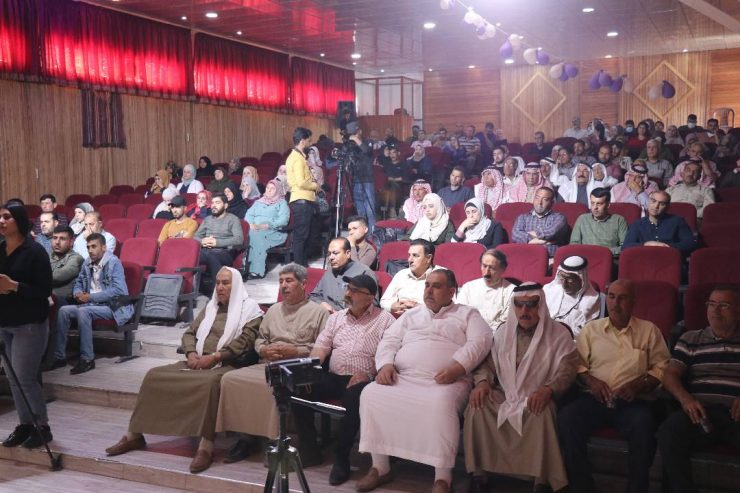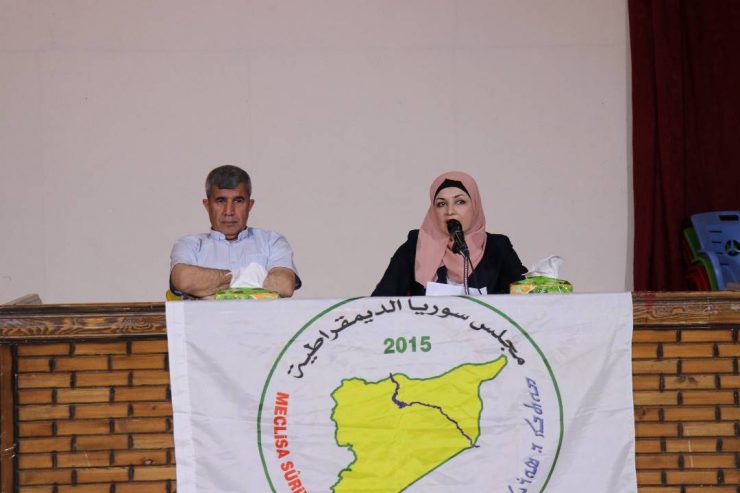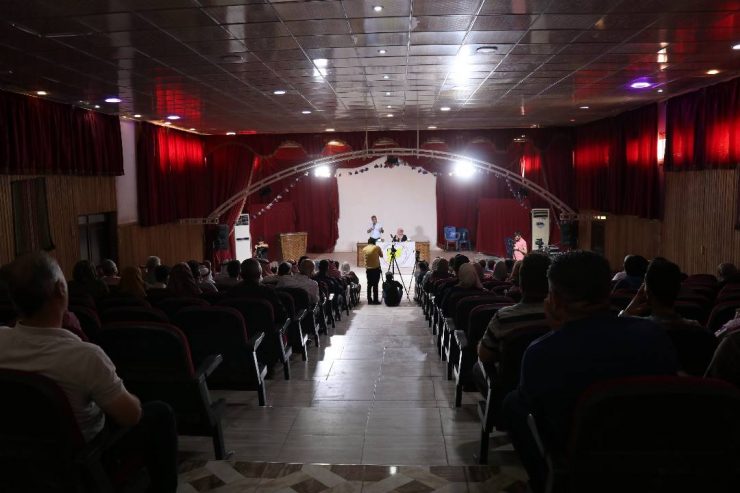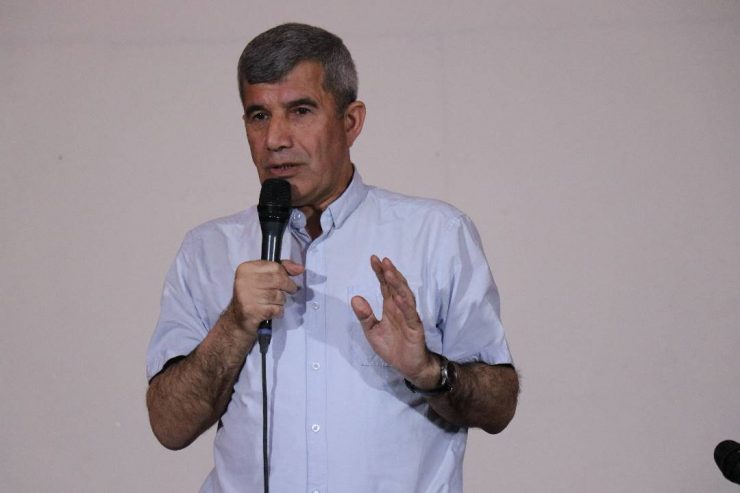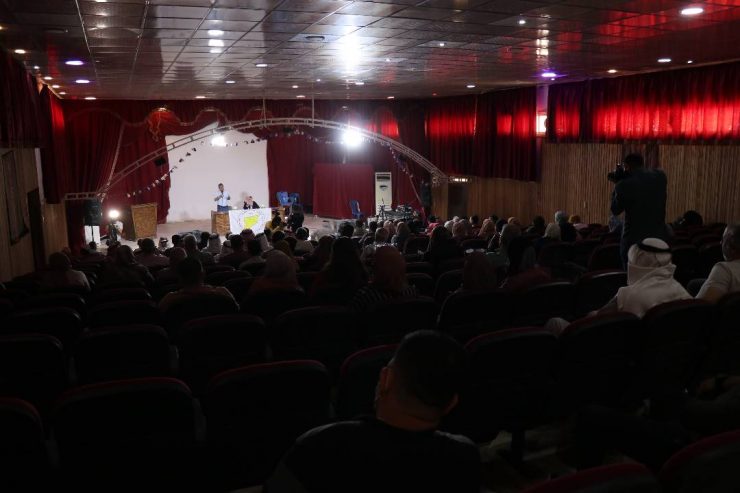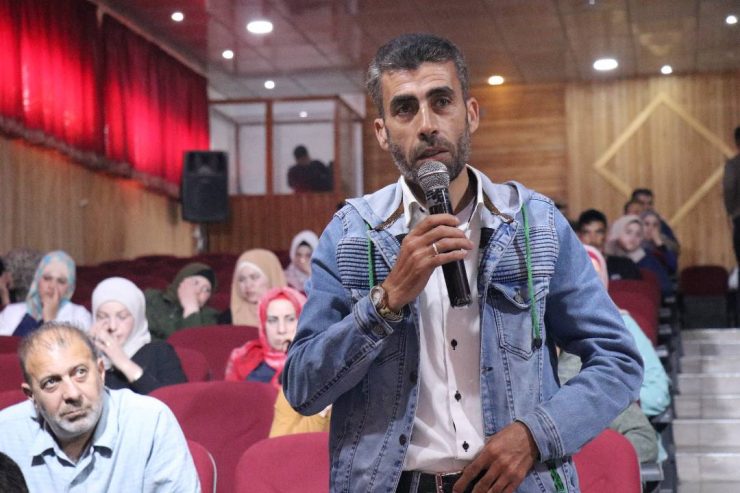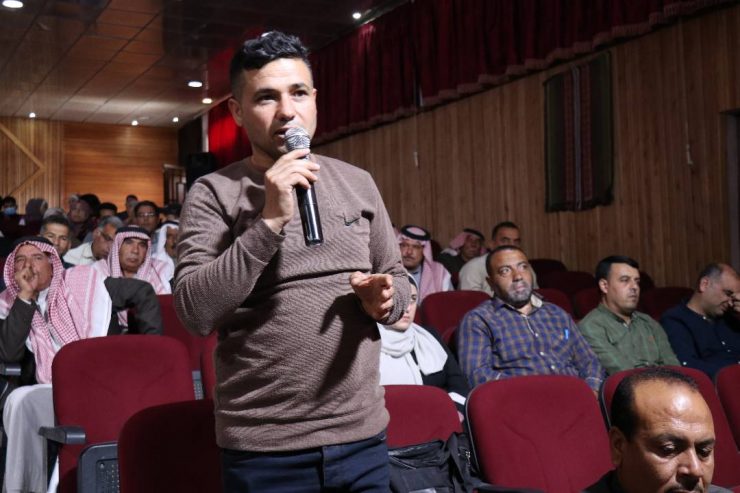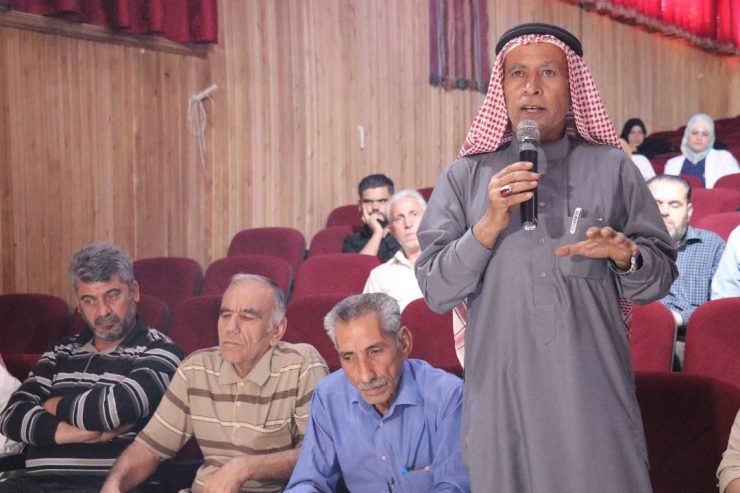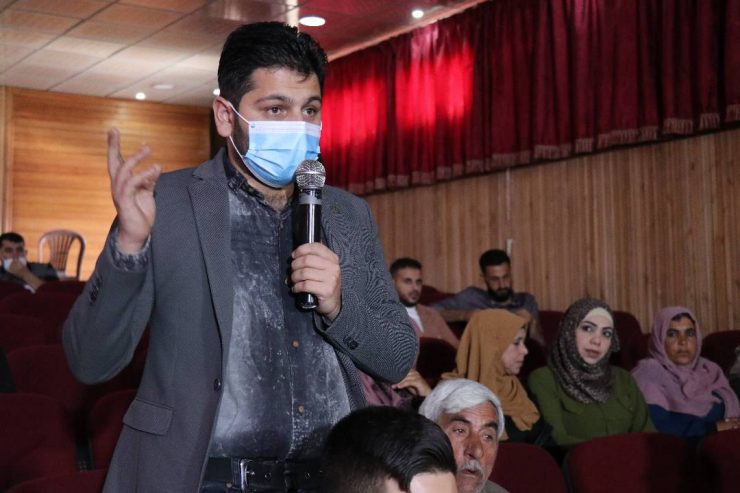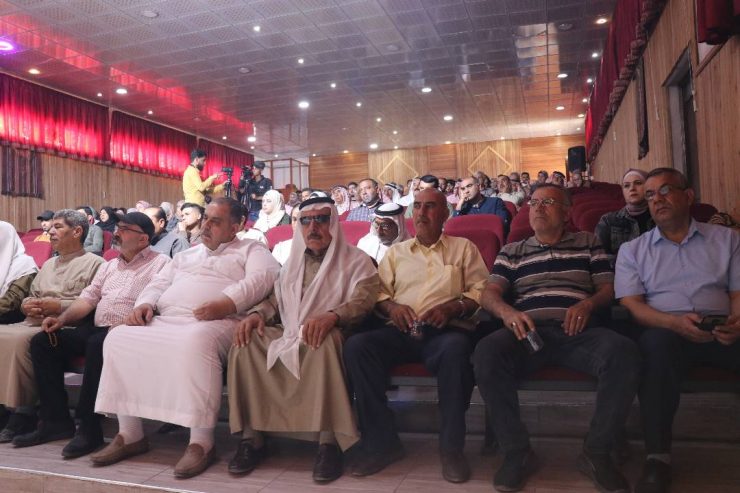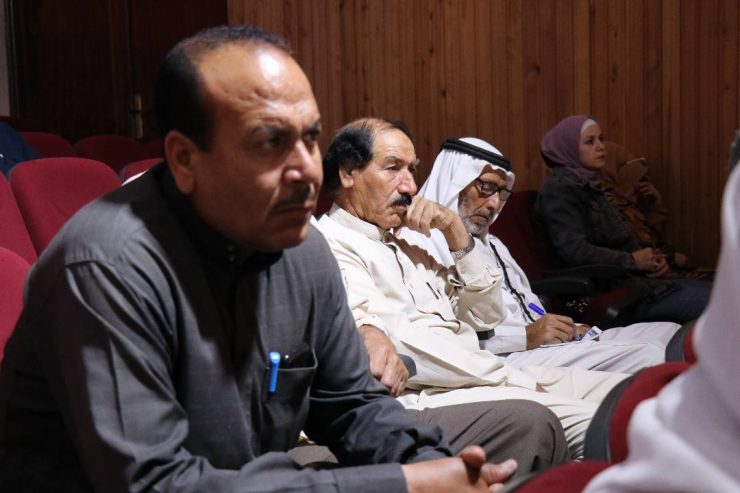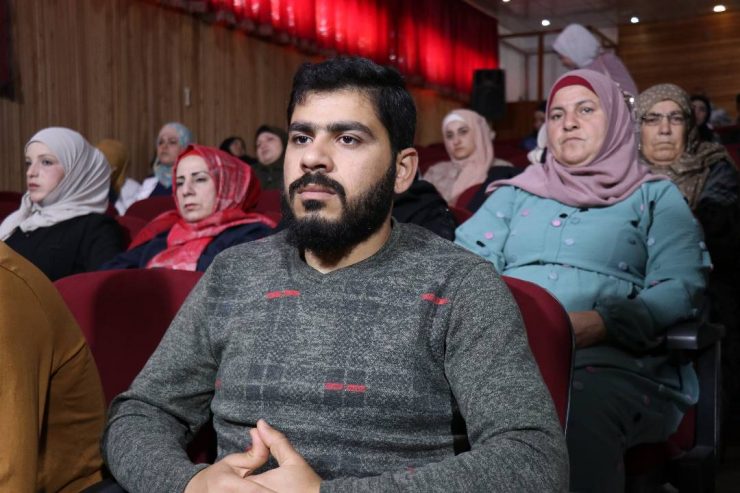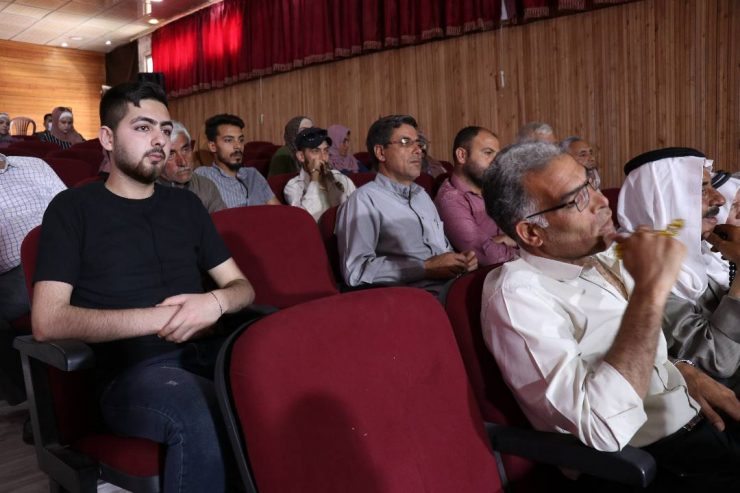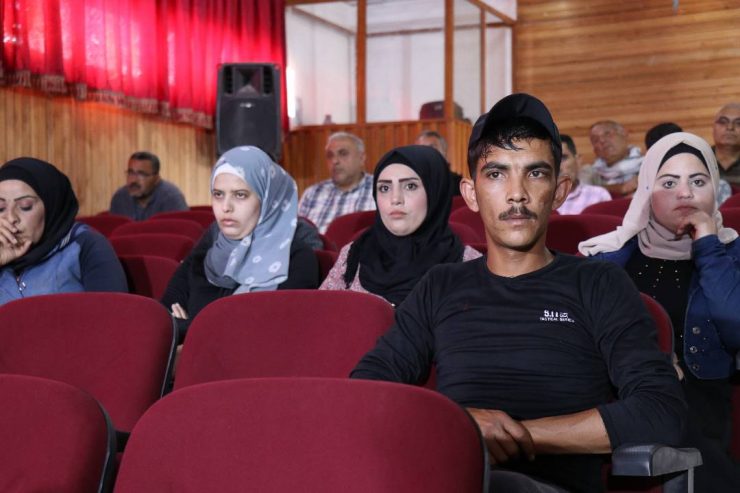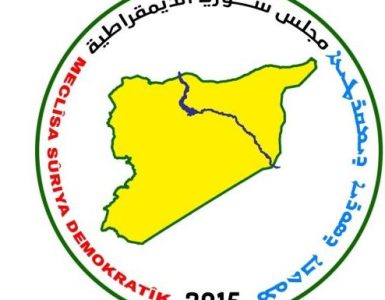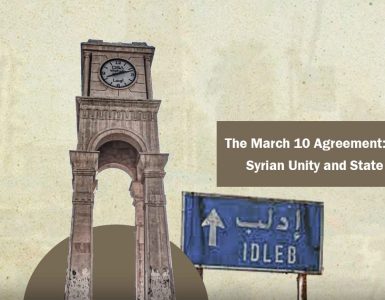A panel discussion was held yesterday, on Wednesday, with a large gathering of residents from Manbij city and its countryside, examining the motives and mechanisms of Turkish normalization with the authorities in Damascus on one hand, and Arab normalization on the other hand. The discussion also covered the mechanisms, outcomes, and implications of this normalization on the political resolution in Syria.
The symposium, organized by the Syrian Democratic Council, was attended by Hassan Muhammed Ali, the Co-chair of the Syrian Democratic Council and a member of the Executive Body, and Amal Dada, the official of the Relations Bureau in Manbij, as well as a select group of tribal leaders, political parties, intellectuals, and administrators in civil institutions, within the Cultural and Art Center in Manbij.
The symposium was begun with Hassan Muhammed’s speech, in which he explained the paths of normalization and its repercussions and impacts on the region and Syria. He analyzed the contributing countries and the objectives of each country, including Saudi Arabia, the United Arab Emirates, Jordan, Egypt, and Turkey. He also highlighted the underlying multiple motives, with the most prominent being the prolonged Syrian crisis, its impact on the region, the delay of the international resolution, regional expansions, and the threat to Arab national security.
Regarding the obstacles to normalization, Muhammed Ali stated that the Caesar Act and the ongoing US sanctions are still in effect. Furthermore, this normalization is rejected by European parties and is associated with conditions, including seriousness in dealing with Syrian parties, the issue of refugee returns, the pursuit of a political resolution, and the release of detainees.
During the participations, the attendees emphasized the importance of UN Resolution 2254 and the Arab community’s efforts to resolve the Syrian crisis and limit Turkish and Iranian expansion in Syria, so as not to lead to further crises in the region.
Mr. Khadir Al-Hammadi stressed the necessity of popular participation in political decisions, questioning whether normalization is proceeding according to the rules and normal principles of international relations.
On another note, Ibrahim Al-Quftan, the former secretary-general of the Future Syria Party, discussed the Arab League’s Resolution 8914 and its six clauses, which align with the proposals of the initiative of Autonomous Administration, as well as the lack of seriousness by the international community in dealing with the Syrian crisis, despite the nine Geneva meetings and nineteen Astana meetings that have proven futile.
Sheikh Ali Al-Jumaili recalled the Sykes-Picot agreements that divided countries over a century ago, and at the beginning of this century, the term “New Middle East” was coined by Rice. He wondered whether this normalization could be labeled from this perspective, and what strategies the Autonomous Administration would adopt.
Mr. Abdul Qadir Al-Hussein concluded that everyone knows that the Syrian government has no decision-making power, and returning it to the Arab League to give it one last chance and control the country’s resources and this decision does not serve the Syrian society, as the Arab League is a tool for implementing agendas, according to Al-Hussein.
Kamal Khallo, a member of the Intellectuals Union, emphasized the need to develop significant economic strategies for the region and open other border crossings, as the Semalka crossing is being used for political purposes, while the economy is an integral part of politics.
Muhammed Al-Khalil, a member of the political Bureau of the Revolutionary Army, questioned about the positive benefits that the region and Syria would gain from the normalization process. He suggested that the region is going to play a major role in becoming a rescue for free nationalists, and he questioned if a real communication has been established with them in various locations.
At the end of the symposium, the organizers noted that the Syrian Democratic Council has consistently declared its position regarding normalization processes from the beginning, and it continues on its Syrian path and approach, sending messages to everyone until a comprehensive political resolution for the Syrian crisis is reached.


